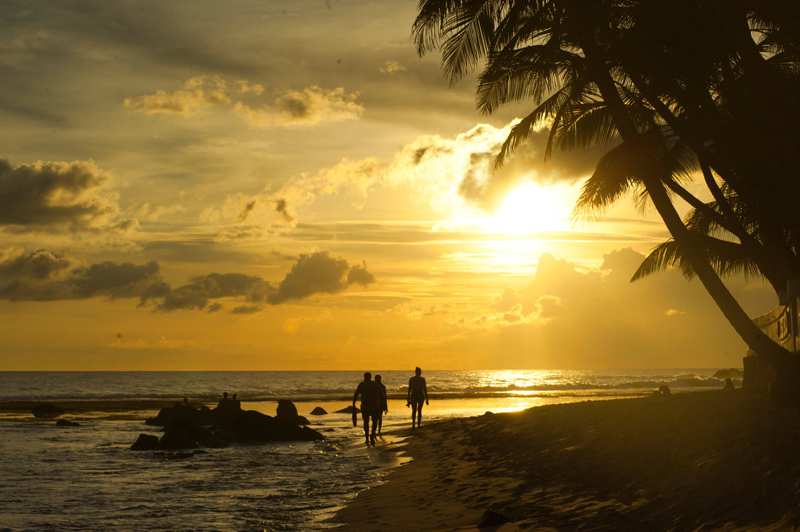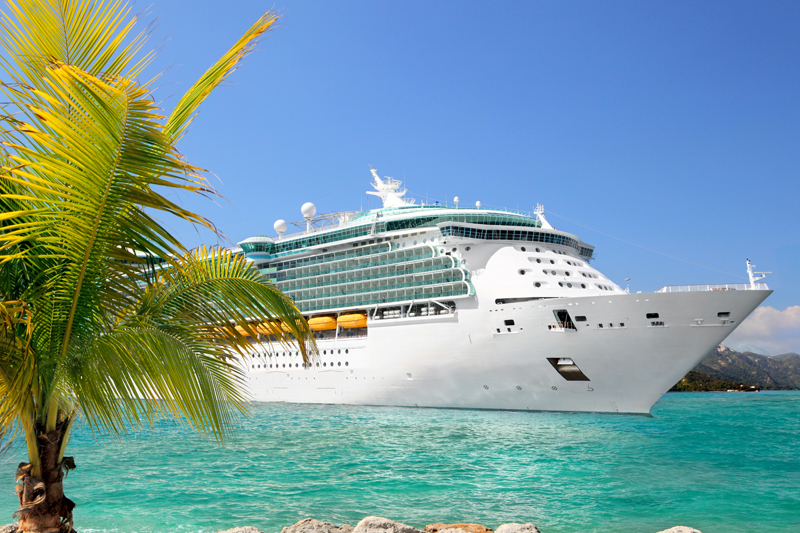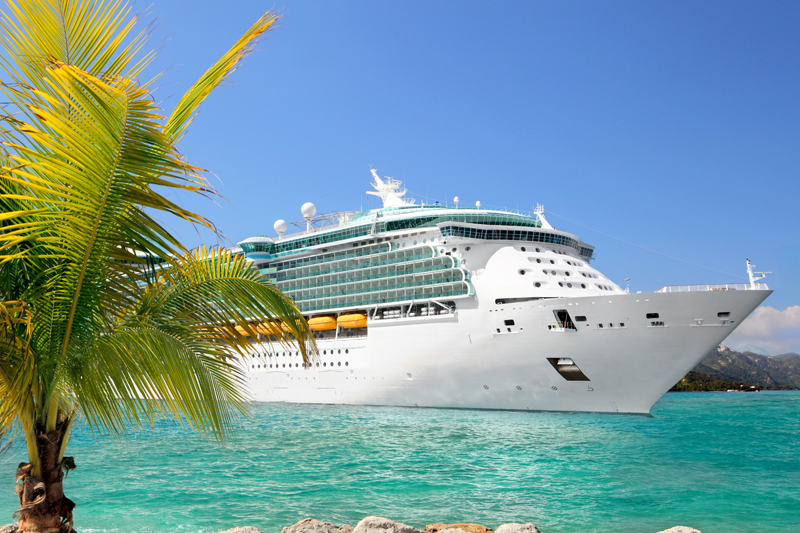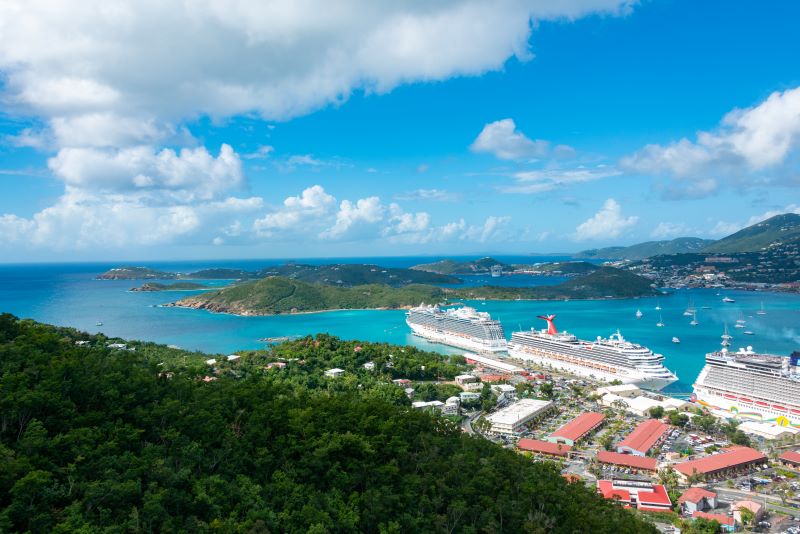10 Ways To Avoid Getting Sick On Vacation

No one wants to get sick on vacation, but it can happen quite frequently. Colds, viruses, and food-borne illnesses may be contracted while traveling. Norovirus outbreaks can also occur in vacation locations such as cruise ships and resort hotels. Coronavirus (COVID-19) is currently a major concern while traveling as well.
Here are ten great tips for staying healthy on vacation and avoiding illnesses like the current coronavirus, norovirus and the flu. Following these approaches while on your trip can help reduce your chances of getting sick:
1. Wash your hands frequently. Frequent hand washing is the Center for Disease Control’s top recommendation for keeping colds, the flu, and norovirus away. It is key in helping to prevent a coronavirus infection as well. Use hot water, wash your hands thoroughly with plenty of soap for at least 20-30 seconds, then rinse and dry your hands well with clean paper towels. Be particularly careful to wash your hands before brushing your teeth as well as before and after handling food and eating. Avoid shaking hands, too. Make sure to wash your hands thoroughly after going to the bathroom, returning to your room, and after touching any surfaces commonly used by other resort, hotel or cruise guests such as railings, elevator buttons, exercise equipment, chairs, public computer keyboards and doorknobs. Also wash your hands after returning from shore excursions. If you do encounter anyone who is sick, make sure to wash your hands immediately and launder any clothing items that might have come into contact with them.
2. Use hand sanitizer in addition to washing your hands. Bring along hand sanitizer wipes on vacation to clean commonly used areas such as airline tray tables and armrests. Cruise ships usually have hand sanitizer dispensers located throughout the ship. Use them as often as possible and consider carrying your own as well. In addition, if crew members offer to spray your hands with sanitizer when returning to the cruise ship or entering a buffet area, take them up on their offer. Remember that using hand sanitizers does not take the place of regularly washing your hands, though. Thorough hand washing is definitely the most effective way to kill virus particles.
3. Take vitamins and immune-boosting supplements. A healthy immune system is one of the best defenses against travel-related illnesses. Before leaving on your trip, start taking vitamin C supplements as well as probiotics. Consuming foods rich in vitamin C, such as oranges, strawberries, papaya and others may help keep colds away, too. If you feel a cold coming on, chicken soup and zinc supplements such as Cold-Eeze may be helpful as well.
4. Stay away from salads, raw produce and uncooked foods. Choose well-cooked foods while on vacation. Salads are often a leading culprit in the spread of gastrointestinal illnesses. As healthy and delicious as they might be, it’s often best to stay away from salads, fresh unpeeled fruit and raw produce on vacation. The same is true for raw shellfish and food items that need to be chilled.
5. Avoid self-serve buffets. With their big crowds of people and common use of the same serving utensils, major buffet areas at all-inclusive resorts and on cruise ships are easy places for viruses to spread. On cruise ships, even though pre-boarding questionnaires designed to detect illnesses are required to be completed, infected passengers can come on board the ship during embarkation day and subsequently spread the illness. That's a major reason to avoid buffet areas for the first few days of your cruise vacation.
6. Drink bottled water. Water-borne infections and viruses can sometimes be contracted in hotels, resorts and on shore excursions in certain areas. Opt for bottled water and use plastic cups instead of drinking glasses. Fill up water bottles in your bathroom rather than in common-use areas to avoid contamination. In addition to viruses, drinking bottled water will help guard against water-borne gastrointestinal illnesses as well.
7. Keep your hands away from your face. Individuals who have the flu, colds, norovirus and coronavirus can be contagious for as much as several days to weeks before and after exhibiting symptoms. One of the easiest ways to pick up any virus is to touch a contaminated surface, such as a railing or elevator button, and then touch your hand to your eyes, nose, mouth or lips. Make a conscious effort to keep your hands away from your face unless they have just been thoroughly washed. Don't press elevator buttons with your fingers. Use your knuckles instead.
8. Try to avoid crowds and public bathrooms. If you're trying to avoid virus outbreaks, stay away from crowded places and public bathrooms where the flu and other virus-type illnesses can be easily spread. Avoid people who are sick. Bathrooms can be a breeding ground for norovirus if there are sick people in the community. This is true on ships and in other vacation spots as well. Whenever possible, return to your room to go to the bathroom. If you need to use the bathrooms located in public areas or when on a shore excursion, wash your hands carefully and use a paper towel or hand sanitizer wipe to protect your hands when turning off the faucet and opening the bathroom door.
9. Shy away from street food. While enjoying authentic foods and experiencing local cultures are an exciting part of travel, it’s also key to stay healthy as well. Sampling street food can be great, but it’s also one of the common ways that travelers can get sick. If you really want to try local street food, make sure it’s well cooked and avoid items like shellfish.
10. Get plenty of sleep and drink lots of water. A healthy immune system is a key factor in fighting off any virus. Make sure to drink as much water as possible and get lots of sleep. This is important to do before you leave on vacation as well. It’s quite common for people to stress out, run around like crazy and stay up late working prior to traveling, only to get sick once on vacation due to a run-down immune system. Currently, there are no vaccines or medical treatment for colds, norovirus and coronavirus. Resting and staying hydrated with water and sports drinks will be very important if you get sick, too.
If you're planning or booking a trip in the future, it's generally wise to buy travel insurance. It's important to read travel insurance policies carefully to understand what is covered and how much will be reimbursed if the need to cancel or postpone your trip occurs. Purchasing "Cancel for Any Reason" travel insurance will help protect some of your investment in case you wish to cancel your trip due to coronavirus or other virus-related concerns. Medical evacuation coverage is important to have as well. Talk with your travel agent or a travel insurance specialist to find out more.
Here are ten great tips for staying healthy on vacation and avoiding illnesses like the current coronavirus, norovirus and the flu. Following these approaches while on your trip can help reduce your chances of getting sick:
1. Wash your hands frequently. Frequent hand washing is the Center for Disease Control’s top recommendation for keeping colds, the flu, and norovirus away. It is key in helping to prevent a coronavirus infection as well. Use hot water, wash your hands thoroughly with plenty of soap for at least 20-30 seconds, then rinse and dry your hands well with clean paper towels. Be particularly careful to wash your hands before brushing your teeth as well as before and after handling food and eating. Avoid shaking hands, too. Make sure to wash your hands thoroughly after going to the bathroom, returning to your room, and after touching any surfaces commonly used by other resort, hotel or cruise guests such as railings, elevator buttons, exercise equipment, chairs, public computer keyboards and doorknobs. Also wash your hands after returning from shore excursions. If you do encounter anyone who is sick, make sure to wash your hands immediately and launder any clothing items that might have come into contact with them.
2. Use hand sanitizer in addition to washing your hands. Bring along hand sanitizer wipes on vacation to clean commonly used areas such as airline tray tables and armrests. Cruise ships usually have hand sanitizer dispensers located throughout the ship. Use them as often as possible and consider carrying your own as well. In addition, if crew members offer to spray your hands with sanitizer when returning to the cruise ship or entering a buffet area, take them up on their offer. Remember that using hand sanitizers does not take the place of regularly washing your hands, though. Thorough hand washing is definitely the most effective way to kill virus particles.
3. Take vitamins and immune-boosting supplements. A healthy immune system is one of the best defenses against travel-related illnesses. Before leaving on your trip, start taking vitamin C supplements as well as probiotics. Consuming foods rich in vitamin C, such as oranges, strawberries, papaya and others may help keep colds away, too. If you feel a cold coming on, chicken soup and zinc supplements such as Cold-Eeze may be helpful as well.
4. Stay away from salads, raw produce and uncooked foods. Choose well-cooked foods while on vacation. Salads are often a leading culprit in the spread of gastrointestinal illnesses. As healthy and delicious as they might be, it’s often best to stay away from salads, fresh unpeeled fruit and raw produce on vacation. The same is true for raw shellfish and food items that need to be chilled.
5. Avoid self-serve buffets. With their big crowds of people and common use of the same serving utensils, major buffet areas at all-inclusive resorts and on cruise ships are easy places for viruses to spread. On cruise ships, even though pre-boarding questionnaires designed to detect illnesses are required to be completed, infected passengers can come on board the ship during embarkation day and subsequently spread the illness. That's a major reason to avoid buffet areas for the first few days of your cruise vacation.
6. Drink bottled water. Water-borne infections and viruses can sometimes be contracted in hotels, resorts and on shore excursions in certain areas. Opt for bottled water and use plastic cups instead of drinking glasses. Fill up water bottles in your bathroom rather than in common-use areas to avoid contamination. In addition to viruses, drinking bottled water will help guard against water-borne gastrointestinal illnesses as well.
7. Keep your hands away from your face. Individuals who have the flu, colds, norovirus and coronavirus can be contagious for as much as several days to weeks before and after exhibiting symptoms. One of the easiest ways to pick up any virus is to touch a contaminated surface, such as a railing or elevator button, and then touch your hand to your eyes, nose, mouth or lips. Make a conscious effort to keep your hands away from your face unless they have just been thoroughly washed. Don't press elevator buttons with your fingers. Use your knuckles instead.
8. Try to avoid crowds and public bathrooms. If you're trying to avoid virus outbreaks, stay away from crowded places and public bathrooms where the flu and other virus-type illnesses can be easily spread. Avoid people who are sick. Bathrooms can be a breeding ground for norovirus if there are sick people in the community. This is true on ships and in other vacation spots as well. Whenever possible, return to your room to go to the bathroom. If you need to use the bathrooms located in public areas or when on a shore excursion, wash your hands carefully and use a paper towel or hand sanitizer wipe to protect your hands when turning off the faucet and opening the bathroom door.
9. Shy away from street food. While enjoying authentic foods and experiencing local cultures are an exciting part of travel, it’s also key to stay healthy as well. Sampling street food can be great, but it’s also one of the common ways that travelers can get sick. If you really want to try local street food, make sure it’s well cooked and avoid items like shellfish.
10. Get plenty of sleep and drink lots of water. A healthy immune system is a key factor in fighting off any virus. Make sure to drink as much water as possible and get lots of sleep. This is important to do before you leave on vacation as well. It’s quite common for people to stress out, run around like crazy and stay up late working prior to traveling, only to get sick once on vacation due to a run-down immune system. Currently, there are no vaccines or medical treatment for colds, norovirus and coronavirus. Resting and staying hydrated with water and sports drinks will be very important if you get sick, too.
If you're planning or booking a trip in the future, it's generally wise to buy travel insurance. It's important to read travel insurance policies carefully to understand what is covered and how much will be reimbursed if the need to cancel or postpone your trip occurs. Purchasing "Cancel for Any Reason" travel insurance will help protect some of your investment in case you wish to cancel your trip due to coronavirus or other virus-related concerns. Medical evacuation coverage is important to have as well. Talk with your travel agent or a travel insurance specialist to find out more.

Related Articles
Editor's Picks Articles
Top Ten Articles
Previous Features
Site Map
Content copyright © 2023 by Nancy Schretter. All rights reserved.
This content was written by Nancy Schretter. If you wish to use this content in any manner, you need written permission. Contact Nancy Schretter for details.







